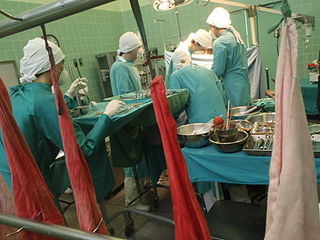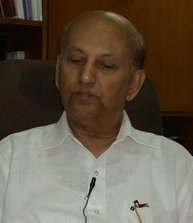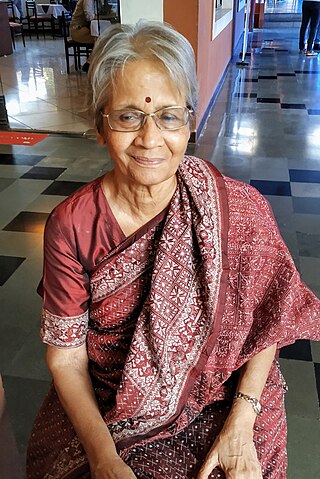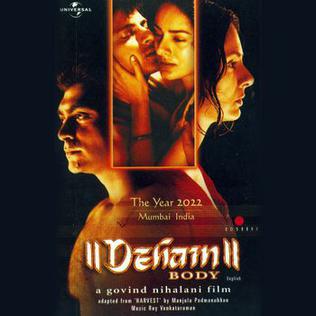Related Research Articles

Organ donation is the process when a person allows an organ of their own to be removed and transplanted to another person, legally, either by consent while the donor is alive or dead with the assent of the next of kin.

Organ transplantation is a medical procedure in which an organ is removed from one body and placed in the body of a recipient, to replace a damaged or missing organ. The donor and recipient may be at the same location, or organs may be transported from a donor site to another location. Organs and/or tissues that are transplanted within the same person's body are called autografts. Transplants that are recently performed between two subjects of the same species are called allografts. Allografts can either be from a living or cadaveric source.

Transplant rejection occurs when transplanted tissue is rejected by the recipient's immune system, which destroys the transplanted tissue. Transplant rejection can be lessened by determining the molecular similitude between donor and recipient and by use of immunosuppressant drugs after transplant.

Al Kooper is a retired American songwriter, record producer and musician, known for organizing Blood, Sweat & Tears, although he did not stay with the group long enough to share its popularity. Throughout much of the 1960s and 1970s he was a prolific studio musician, playing organ on the Bob Dylan song "Like a Rolling Stone", French horn and piano on the Rolling Stones song "You Can't Always Get What You Want", and lead guitar on Rita Coolidge's "The Lady's Not for Sale", among many other appearances. Kooper also produced a number of one-off collaboration albums, such as the Super Session album that saw him work separately with guitarists Mike Bloomfield and Stephen Stills. In the 1970s Kooper was a successful manager and producer, recording Lynyrd Skynyrd's first three albums. He has also had a successful solo career, writing music for film soundtracks, and has lectured in musical composition. Kooper was selected for induction for the Rock and Roll Hall of Fame in 2023.

Xenotransplantation, or heterologous transplant, is the transplantation of living cells, tissues or organs from one species to another. Such cells, tissues or organs are called xenografts or xenotransplants. It is contrasted with allotransplantation, syngeneic transplantation or isotransplantation and autotransplantation. Xenotransplantation is an artificial method of creating an animal-human chimera, that is, a human with a subset of animal cells. In contrast, an individual where each cell contains genetic material from a human and an animal is called a human–animal hybrid.

Udupi Ramachandra Rao was an Indian space scientist and former chairman of the Indian Space Research Organisation. He was also the Chairman of the Governing Council of the Physical Research Laboratory at Ahmedabad and Nehru Planetarium at Bengaluru and chancellor of the Indian Institute for Space Science and Technology (IIST) at Thiruvananthapuram. He is known as "The Satellite Man of India". He pioneered India's first satellite launch Aryabhata in 1975.
Harvest is the process of gathering mature crops from the fields.

Madras Medical College (MMC) is a public medical college located in Chennai, Tamil Nadu, India. Established in 1835, it is the one of the oldest medical colleges in India, as well as in Asia.
Manjula Padmanabhan is an Indian playwright, journalist, comic strip artist, and children's book author. Her works explore science, technology, gender, and international inequalities.
Akkineni Sreekar Prasad is an Indian film editor. He works predominantly in Telugu, Malayalam, Tamil, and Hindi language films. In a career spanning more than 35 years, he has edited over 600 films. He is a recipient of nine National Film Awards including seven wins for Best Editing which is a record in that category. He also won five Kerala State Film Awards, two Andhra Pradesh state Nandi Awards, and two Filmfare Awards among others.

Organ transplantation in China has taken place since the 1960s, and is one of the largest organ transplant programmes in the world, peaking at over 13,000 liver and kidney transplants a year in 2004. Involuntary organ harvesting is illegal under Chinese law; though, under a 1984 regulation, it became legal to remove organs from executed criminals with the prior consent of the criminal or permission of relatives. Growing concerns about possible ethical abuses arising from coerced consent and corruption led medical groups and human rights organizations, by the 1990s, to condemn the practice. These concerns resurfaced in 2001, when a Chinese asylum-seeking doctor testified that he had taken part in organ extraction operations.

Thanu Padmanabhan was an Indian theoretical physicist and cosmologist whose research spanned a wide variety of topics in gravitation, structure formation in the universe and quantum gravity. He published nearly 300 papers and reviews in international journals and ten books in these areas. He made several contributions related to the analysis and modelling of dark energy in the universe and the interpretation of gravity as an emergent phenomenon. He was a Distinguished Professor at the Inter-University Centre for Astronomy and Astrophysics (IUCAA) at Pune, India.
Organ procurement is a surgical procedure that removes organs or tissues for reuse, typically for organ transplantation.
Organ trade is the trading of human organs, tissues, or other body products, usually for transplantation. According to the World Health Organization (WHO), organ trade is a commercial transplantation where there is a profit, or transplantations that occur outside of national medical systems. There is a global need or demand for healthy body parts for transplantation, which exceeds the numbers available.
"Harvest" is the 14th episode of the second season of the American television show Numbers. Inspired by a Christian Science Monitor article about organ tourists, people who travel to a different country to give their organs for money, and an algorithm developed in the United States, the episode features Federal Bureau of Investigation (FBI) agents and mathematicians attempting to locate a missing organ tourist before she is killed.
Organ theft is the forcible removal of a person's organs to be used as transplants and sold in black market. The pop culture image of organ theft involving a drugged traveller waking up in a bathtub full of ice is an urban legend; in reality, cases of organ theft involve traffickers coercing poor people, war crimes, and thefts in a hospital setting. It is also a commonly used trope in science fiction.

Shanta Gokhale is an Indian writer, translator, journalist and theatre critic. She is best known for her works Rita Welinkar and Tya Varshi.
Rahul Pandita is an Indian author and journalist.
Allegations of forced organ harvesting from Falun Gong practitioners and other political prisoners in China have raised concern within the international community. According to a report by former lawmaker David Kilgour, human rights lawyer David Matas and journalist Ethan Gutmann of the Victims of Communism Memorial Foundation, political prisoners, mainly Falun Gong practitioners, are being executed "on demand" in order to provide organs for transplant to recipients. Reports have said that organ harvesting has been used to advance the Chinese Communist Party's persecution of Falun Gong and because of the financial incentives available to the institutions and individuals involved in the trade. A report by The Washington Post has disputed some of the allegations, saying that China does not import sufficient quantities of immunosuppressant drugs, used by transplant recipients, to carry out such quantities of organ harvesting.

Deham is a 2001 film directed by Govind Nihalani based on playwright Manjula Padmanabhan's play Harvest. It has Kitu Gidwani, Joy Sengupta, Alyy Khan, Surekha Sikri and Julie Ames in lead roles. It is a futuristic story depicting the organ sale from relatively poorer countries to the rich. Nihalani himself called it a "serious social sci-fi film". Deham won the prestigious Netpac award for the Best Asian Film at the 25th Goteborg Film Festival, 2002, in Sweden.
References
- ↑ Padmanabhan, Manjula (25 March 2020). Blood and Laughter: Plays. Hachette India. ISBN 978-93-89253-35-1.
- 1 2 Vaughan, Peter (20 July 1997). "Playwriting contest has plenty of winners". Star Tribune. p. 70. Retrieved 16 December 2022.
- ↑ Wasson, Sara (13 October 2020). Transplantation Gothic: Tissue transfer in literature, film, and medicine. Manchester University Press. ISBN 978-1-5261-3288-8.
- ↑ Langer, J. (2011). Postcolonialism and Science Fiction. Springer. p. 156. ISBN 978-0-230-35605-4.
- ↑ Padmanabhan, Manjula (25 March 2020). Blood and Laughter: Plays. Hachette India. ISBN 978-93-89253-35-1.
- ↑ Orel, Glen. "Harvest". Backstage. Retrieved 16 December 2022.
- ↑ Jain, Madhu (27 April 1998). "Book review: Manjula Padmanabhan's 'Harvest'". India Today. Retrieved 16 December 2022.
- ↑ Hoban, Phoebe (25 January 2006). "Just Sign Here, and Your Parts Are Company Property". The New York Times. ISSN 0362-4331 . Retrieved 16 December 2022.